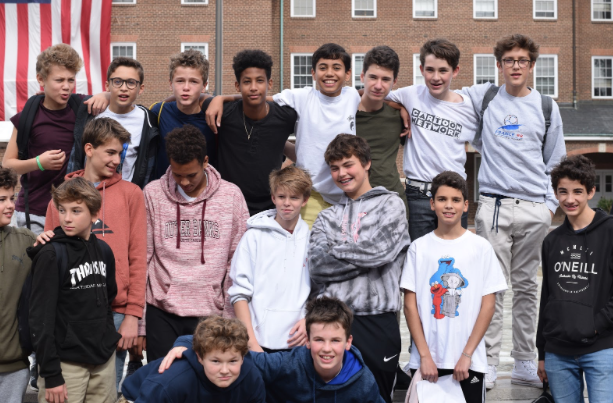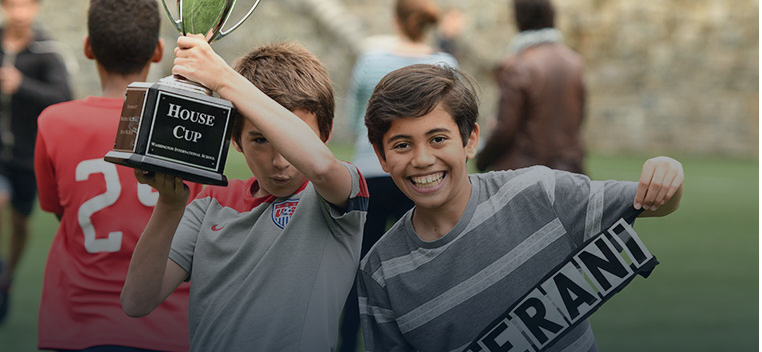Hoards of students cluster on the field. Soccer balls weave in and out of the net. Up above at the red picnic tables, students walk and chatter in small groups. The bell rings and the sixth graders are called in for class.
The transition between elementary school and middle school has a big impact on student life. Sixth graders use their newfound freedom to their social advantage. Anything related to elementary school is deemed a joke. More “important” things now cloud students’ minds, namely, social matters. Homework is done quickly, so that students have more time to talk to their friends.
“When people try or just become popular, homework seems less important,” sixth grader Reese Kam said.
This interruption in the learning process can sometimes be attributed to the idea of being “popular.”
Popularity involves being “liked or admired by many people or by a certain group of people,” according to Oxford Dictionary. In middle school, however, a new definition is created: popularity groups are formed. In theory, these groups are cool and funny, but many students at WIS who are not included in these so-called popular groups disagree.
“Popular kids assume that they’re superior to everyone else,” one anonymous sixth grader said. “They always have the upper hand in the conversation.”
The general consensus among sixth graders is that the word “popular,” in this case, is just a title. Very few students thoroughly enjoy being near the “popular kids” and believe that the name “popular” is merely half deserved. Additionally, many people feel annoyed at students who include a very limited number of people in their friend group.
Popularity, it seems, can also lead to a subtle and even subconscious change in interests.
“I’ve noticed that some of the sixth grade girls have started caring more about boys and popularity, and they’re skipping sports practices to watch boys’ soccer games,” the anonymous sixth grader added. “I wasn’t really expecting that to happen.”
Popularity is a very desirable idea to most students, according to Kam. But in order to become popular, someone occasionally will think that they have to leave “unpopular friends.” They may still talk to their old friends and hang out with them, but given the choice to sit at two different lunch tables, they will pick the one with the popular crowd.
“When people want to become popular… it breaks up friendships,” Kam said. “Friends would rather be popular and less happy. They don’t want to be less popular and happier.”
Though the general feeling is negative towards “popularity,” most students have a desire to be popular. Popularity is magnetic; it draws many people’s attention. While many people ignore this feeling, it can grow when one sees all the attention that these “popular kids” receive.
“All of us are slightly attracted by the idea of being popular,” Kam said. “Even [I], for some time, was interested in being popular. It really only comes to how you deal with that idea.”
By Paloma Naftulin

































































